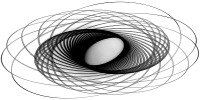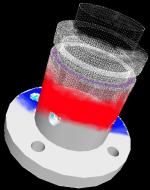Data Sets
- [Details]
FC Langbein, SP O’Neil, SG Shermer. Data – Energy Landscape Controllers for XX Spin Rings. Dataset, 2023.
FC Langbein, SP O’Neil, SG Shermer. Results – Energy Landscape Controllers for XX Spin Rings – Robustness. Dataset, 2023.
SP O’Neil, FC Langbein, SG Shermer. Robustness of Energy Landscape Controllers for XX Spin Rings. Cambridge Open Engage. Dataset, 2023.
- [Details]
S.M. Shermer, C. Jenkins, M. Chandler, F.C. Langbein. Magnetic resonance spectroscopy data for GABA quantification using MEGAPRESS pulse sequence. Data set, IEEE Data Port, 15th August 2019.
- [Details]
FC Langbein, S O’Neil, SG Schirmer. Energy landscape controllers for quantum state transfer in spin-1/2 networks with ring topology, Research Directions, Cambridge Open Engage, 2023.
Codes
- RobChar: Robust Characterisation of Quantum Controls and Control Algorithms
I. Khalid, C. A. Weidner, E. A. Jonckheere, S. G. Shermer, F. C. Langbein. RobChar: Robust Characterisation of Quantum Controls and Control Algorithms. Code, https://github.com/qyber-black/code-robchar, 22nd July 2022.
- MatSpinNet
FC Langbein, SG Shermer, S O’Neil, E Jonckheere. MatSpinNet. Code, https://qyber.black/spinnet/code-matspinnet, https://github.com/qyber-black/Code-MatSpinNet.
- MRSNet
M. Chandler, C. Jenkins, S. M. Shermer, F. C. Langbein. MRSNet, V1.0. Code, https://qyber.black/MRIS/mrsnet, https://github.com/MaxChandler/MRSNet, 16th August 2019.
- Efficient Feature Recognizer
This code is an extension to PostgreSQL for finding CAD features efficiently. Development of this code has been supported by the Marie Curie Initial Training Network INSIST, funded by the 7th EU Framework Programme (FP7) under grant agreement n° 289361.
- SimpErr
This code is to estimate the simplification error. It’s an an extension to ngsolve / netgen to estimate the effect of model simplifications on a quantity of interest aimed at electrostatics problems.
- Mesh Denoising Algorithm
This is software for denoising meshes using the technique described in our paper “Fast and Effective Feature-Preserving Mesh Denoising”.
- mdenoise-1.1.tar – Mesh Denoising Version 1.1.
If you use this code please cite one of these publications:
- Approximate Regularity Detection
The following software detect approximate regularities for design intent detection. It has been implemented on Linux in C++ (gcc 3.3) and Matlab using OpenCascade 5.2.
If you use this code please cite one of these publications:
- Regularity Feature Tree Construction
The following software constructs regularity feature trees for design intent detection. It has been implemented on Linux in C++ (gcc 3.3) and Matlab using OpenCascade 5.2.
If you use this code please cite one of these publications:
- FReg
FReg is the implementation of an algorithm to detect approximate symmetries of point sets and B-rep models. It has been developed as part of the Beautification of reverse engineered geometric models project. The algorithm has been implemented originally by B. I. Mills. I am currently maintaining the sources.
The main algorithm has been implemented. Version 0.2 ...
- SiL
- Approximate Symmetry Detection
The following software detects approximate symmetries for design intent detection. It has been implemented on Linux in C++ (gcc 3.3) and Matlab using OpenCascade 5.2.
If you use this code please cite one of these publications:
- LiLit
LiLit is a program to visualize functionals on freeform surfaces. It uses biquadratic g-splines to display surfaces and functions, which are defined by a control mesh for the surface and the function from some file in a special input format. It can run the Doo-Sabin subdivision algorithm on the control meshes, compute some surface integrals ...
- PIDS Code
PIDS is an algorithm for simplifying mathematical expressions, implemented in emacs lisp.
- pids-1.0.tar.gz – PIDS Version 1.0.
If you use this code please cite
![]() This work is licensed under a Creative Commons Attribution-NonCommercial-ShareAlike 4.0 International License.
This work is licensed under a Creative Commons Attribution-NonCommercial-ShareAlike 4.0 International License.

